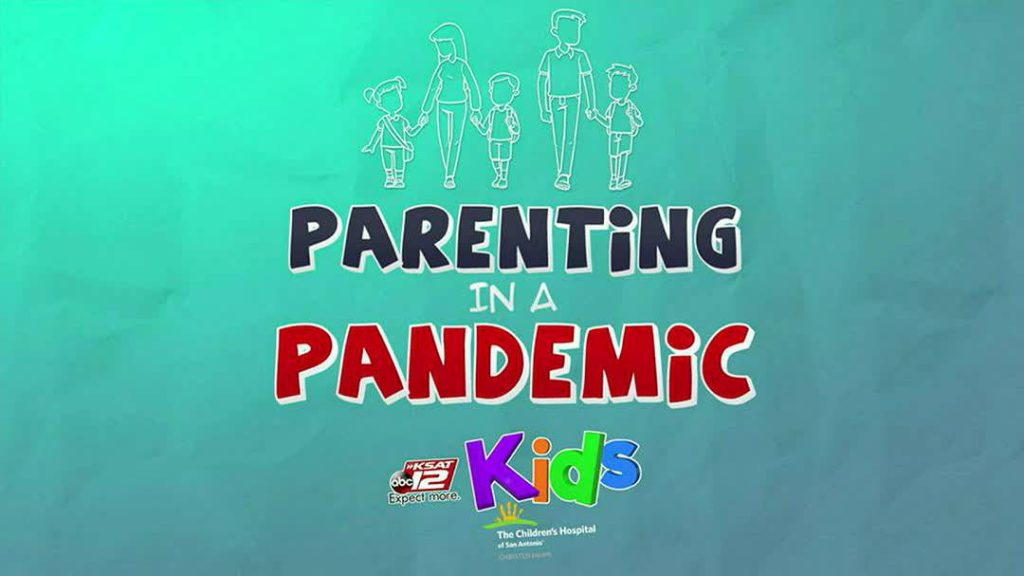SAN ANTONIO – The last year has been full of challenges for everyone but especially for parents. Adapting to the threat of COVID-19, shutdowns, changes to school, childcare and social circles has been no easy task. While things seem more hopeful in recent weeks, parents are still battling with the effects of the pandemic.
During Tuesday’s ‘Parenting in a Pandemic’ livestream Myra Arthur talked with professionals and parents about how all of these changes might affect children and teens in the long haul. Here are four of the biggest takeaways:
1. Anxiety and depression are on the rise
A big and important topic the pandemic has highlighted is mental health. Dr. Jessica Knudsen, CEO and President of Clarity Child Guidance Center, says she’s seen a significant increase, particularly in anxiety disorders.
Ad
“Kids are having, not just social anxiety, which is definitely a side effect of the way they’ve been doing school the last year, but also just some anxiety about the virus,” Knudsen explained.
According to the Centers for Disease Control and Prevention, anxiety and depression in children has increased over the past decade or so.
So what are the signs your child is struggling?
Ultimately, Knudsen said “parents know their kids and I think they know when there’s been a significant change. Because the tough thing about this is it can look different depending on age. It can look different (from) kid to kid… Depression doesn’t look like it does in the movies.”
2. Self-care for parents
Talli Dolge is the President and CEO of Jewish Family Services, an organization that connects families of any faith, race or background with affordable counseling. JFS has seen a 300% uptick in people of all ages seeking services. Dolge believes it’s crucial for parents to tend to their needs as well.
Ad
“I would use the old analogy that a lot of people use — putting your face mask on before your child’s in an airplane situation. Really what it is if you’re not taking care of yourself… there is no way that you’re being the parent you want to be for your child,” she explains.
She recommends taking as little as 10 minutes a day to do something that brings you joy or peace.
3. Addiction to technology
Joshua Andrus has worked as an addiction therapist for over 20 years. Although he says technology addiction isn’t yet a medical diagnosis, he’s seen how too much screen time can have lasting negative effects on mental and physical health and family units.
Andrus has created a series of books focused on reconnecting families who have become distant due to technology and empowering children throughout the pandemic. He says the key to balancing screen time is acknowledging and structuring how that time is used and identifying the signs that they are spending too much time in front of a screen.
Ad
The A-GAME scale is something Andrus created to help parents know when it’s time to act on potential tech addiction.
4. Vaccines still in the works for children
Although experts say children are less susceptible to serve illness due to COVID-19 and aren’t effective transmitters of the virus, many parents are still anxious to know when their child will be eligible for the vaccine.
Dr. Larry Schlesinger with Texas BioMedical Research Institute says that time could come this summer. Both Modera and Pfizer are currently in vaccine trials that include children as young as 12.
“Historically, children do well with these vaccines. The initial age range of 16-18 years was cut off because older children have immune systems very much like adults,” Dr. Schlesinger explained. “In the younger children, very healthy, robust immune systems… We might experience some more local side effects and a mild fever and such. But in general, I expect that the vaccines will be well tolerated. That’s my hope.”
Ad
You can hear more from our panelists and watch the entire livestream in the video player above. Leave your questions or concerns in the box below and we may present it to our next group of panelists.
Copyright 2021 by KSAT – All rights reserved.
